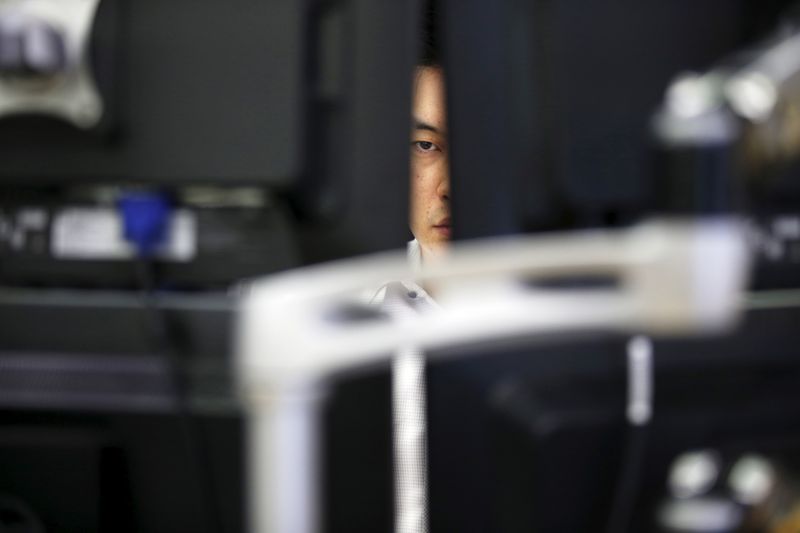By Jihoon Lee
SEOUL (Reuters) – South Korea’s stock market suffered its worst session since the 2008 global financial crisis on Monday, triggering trading restrictions for the first time in four years, while technology shares slumped on fears of a U.S. recession.
The benchmark stock index ended the session down 8.8% at 2,441.55, the biggest percentage drop since October 24, 2008.
During the session, KOSPI fell as much as 10.8%, triggering circuit breakers for the first time since March 2020. These are trading thresholds that are triggered when the index falls or rises by more than 8% and trading in equities and derivatives is halted for 20 minutes.
The KOSPI fell more than 14% from a six-month peak of 2,860.42 in July.
Chip heavyweights Samsung Electronics (KS:) and SK Hynix lost 10.3% and 9.9% respectively, posting heavy losses on the Philadelphia Semiconductor Index.
“The market has entered a zone of extreme fear amid a slump in U.S. big tech stocks, concerns about a slowing U.S. economy and sharp declines in Asian markets,” said Kim Dae-jun, an analyst at Korea Investment Securities.
In the broader Asian market, the MSCI Asia Pacific ex-Japan Index fell more than 2%, while down 12.4%.
Earlier in the day, South Korean authorities issued several comments to calm investor sentiment, with the finance minister promising to respond to increased market volatility under a contingency plan.
U.S. stock futures fell more than 2% during Asian trading hours on Monday, following a sharp decline last Friday on weak employment data that added to fears the labor market would deteriorate and potentially leave the economy vulnerable to a recession.

The South Korean won weakened more than 1% on Monday after hitting a two-month high on Friday as foreigners sold local stocks worth 1.5 trillion won ($1.09 billion) in their biggest sell-off in 2.5 year.
($1 = 1,371.8200 won)


